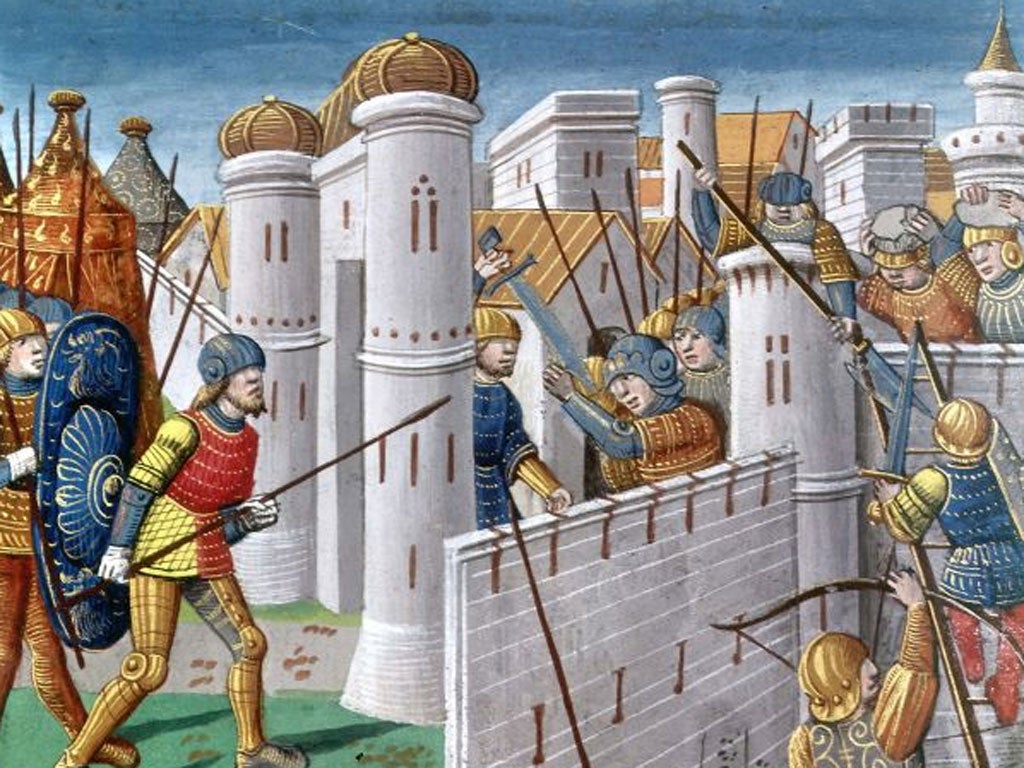History: Countries of the mind

Hands up anyone who can find Burgundia, Borusia or Etruria on the map. You can't. Neither they nor the dozen other mostly forgotten European countries in Norman Davies's Vanished Kingdoms (Allen Lane, £30) exists.
Some of them never did, except as half-realised products of the political imagination. All disappeared; either swallowed by multinational empires or carved up between rival nation-states. Davies's mini-tours of these lost realms are sometimes frustratingly brusque, sometimes with personal biases (notably against Russians), but always evocative. Above all, they are delightfully packed with surprises: little bits of recondite information to startle even the most jaded reader or traveller.
Fernand Braudel's vast two-volume history of the Mediterranean world, published in 1949, has always been hailed as one of the greatest historical studies ever written. It now has probably its worthiest successor, in David Abulafia's The Great Sea (Allen Lane, £30). This "human history" of the Mediterranean – Braudel's was most noted for its emphasis on natural environments and long-term trends – is as imaginative and empathetic as it is compendious and rigorous.
Grand theories of history seem rather out of fashion: few even of 2011's most ambitious historical writings display much of a theoretical framework. On some levels that's rather a pity. It might be time for (another) revival of Marxist historiography, which for all its flaws provided probably the most fertile soil for such theorising. Even veteran New Leftist Robin Blackburn, whose The American Crucible (Verso, £20) completes a great trilogy on the history of slavery and abolition, wears his Marxist influences rather lightly these days. Still, big trans-historical theories are always vulnerable, and maybe always over-reach, especially if they try to base themselves on something as elusive as a general model of human nature. Steven Pinker's The Better Angels of our Nature (Allen Lane, £30) has all that vulnerability, big-time. This is, though, a bold, thought-provoking and notably optimistic work, worth arguing with.
If some doubt whether a book like Pinker's can really count as history, others are equally sceptical whether anything which ventures too near the present can be properly historical. For near-contemporary events we lack many of the sources which enable accurate reconstruction. Still, several current writers manage with sometimes brilliant success to work around the holes in the evidence, and give compelling insights into the "history of the present". Maybe the finest is Jason Burke in The 9/11 Wars (Allen Lane, £30). Burke underlines the importance of his title's plural form: there is not one single, global war "against terror" let alone "for civilisation" (or "for the Ummah") but multiple, loosely articulated local and regional ones.
Perhaps the most dangerous of all those "wars" is that over Pakistan's future. The subtitle to Anatol Lieven's Pakistan: a hard country (Allen Lane, £30) sounds severe, but in many eyes is far too mild. Lieven is concerned to refute the more apocalyptic claims about Pakistan – and perhaps overcompensates, with too friendly a picture especially of the military – but gives persuasive explanations for why the country is so mired in poverty, instability, war, terrorism, oppression and corruption. The book fills a yawning, dangerous gap in knowledge.
Kenya is, like Pakistan, a newish state which ever since its independence has seemed to stagger from one near-disaster to another while somehow holding together. Also like Pakistan, there had been a glaring shortage of really good general works on its post-independence history. Daniel Branch's Kenya: Between Hope and Despair, 1963-2011 (Yale, £25) not only plugs that hole, but has much to say too about the possible futures of many other poor post-colonial states.
Bill Schwarz's The White Man's World (Oxford, £35) is the first volume of three, under the general title Memories of Empire. Exploring the course, consequences and afterlives of decolonisation, it probes how ideas about race and migration continue to haunt us and to shape the meanings of Britishness. Some of 2011's highest-profile histories of empire, like those by Kwasi Kwarteng, Jeremy Paxman and Richard Gott, have been disappointing. Schwarz's work is a wonderful antidote: the finest investigation of these themes for many years.
Maybe it's because I'm (by birth) a Londoner... that I find it hard to love most histories of the city. This year, though, saw some notable exceptions. David Kynaston's City of London (Chatto & Windus, £30) is, apart from all else, an immensely useful book: a single-volume abridgement of his four-decker chronicling the Square Mile's past. Kynaston is a bit too respectful of the robber barons of high finance; we could have done with more whistle-blowing - but then he wouldn't have been given the kind of archival access he had. It's that problem of sources for contemporary history again. A more humanly engaging work takes us east of the City, from histories of wealth to often terrible poverty: John Marriott's superb Beyond the Tower: A History of East London (Yale, £25).
Join our commenting forum
Join thought-provoking conversations, follow other Independent readers and see their replies
Comments
Bookmark popover
Removed from bookmarks